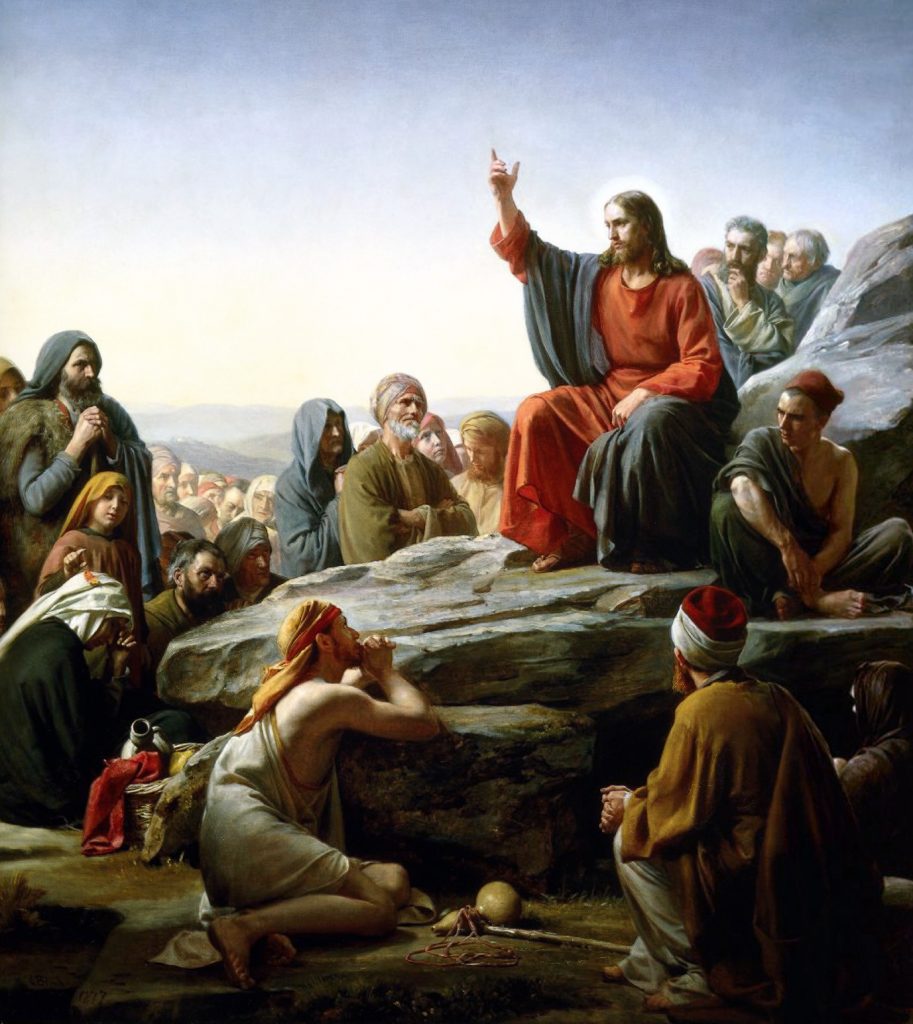Dear Brothers and Sisters,
 We’ve just completed the fourth of seven 2016 US regional conferences with the theme, Renewal: building on the foundation of Jesus. Jesus said he would build his church (Matthew 16:18), and he continues to do just that. Though some say Christianity is declining and dying, the opposite is true. According to a recent Pew Research Center study, the world’s Christian population is projected to grow from 2.2 billion in 2010 to 2.9 billion by 2050, meaning that nearly one in three people on earth will be Christian by mid-century. What excites me is that some of that growth will occur within our fellowship, Grace Communion International.
We’ve just completed the fourth of seven 2016 US regional conferences with the theme, Renewal: building on the foundation of Jesus. Jesus said he would build his church (Matthew 16:18), and he continues to do just that. Though some say Christianity is declining and dying, the opposite is true. According to a recent Pew Research Center study, the world’s Christian population is projected to grow from 2.2 billion in 2010 to 2.9 billion by 2050, meaning that nearly one in three people on earth will be Christian by mid-century. What excites me is that some of that growth will occur within our fellowship, Grace Communion International.
The wide spectrum of Christianity has three main branches: Eastern Orthodox, Roman Catholic, and Protestant. The Protestant branch, of which we are part, has multiple denominations, with some self-identifying as evangelicals. When asked, I explain that GCI is part of the evangelical community. Some ask what it means to be evangelical. Let me explain.

(public domain via Wikimedia Commons)
The term evangelical comes from the Greek word euangelion, which is used in the New Testament to refer to the good news (gospel). Evangelicals focus on proclaiming the good news about the salvation brought to sinners by Jesus Christ. An emphasis on the person and work of Jesus is thus essential, as is an emphasis on the importance of the Bible. Evangelicals are a vibrant, diverse group devoted to sharing the gospel of Jesus Christ. Evangelical believers are found in many denominations and churches, bringing together Reformed, Holiness, Anabaptist, Pentecostal, Charismatic, and other traditions.
When I say GCI is evangelical, I mean that in a theological sense. This is important to note because the term evangelical is often used in a sociological sense to refer to a large and diverse social-political grouping. Journalists often use the term in describing groups at the fringe of evangelicalism.
 As most of you know, GCI became a member denomination of the National Association of Evangelicals (NAE) in 1997. I currently serve on its Board of Directors. The NAE was founded in 1942 and has grown to include more than 40 denominations, as well as universities, para-church ministries, publishers and independent churches. Knowing that the definition of evangelical has been confused (even misused), the NAE initiated a study in partnership with Lifeway Research to refine the definition of what it means to be evangelical. The result determined that an evangelical is identified by strong agreement with the following four statements:
As most of you know, GCI became a member denomination of the National Association of Evangelicals (NAE) in 1997. I currently serve on its Board of Directors. The NAE was founded in 1942 and has grown to include more than 40 denominations, as well as universities, para-church ministries, publishers and independent churches. Knowing that the definition of evangelical has been confused (even misused), the NAE initiated a study in partnership with Lifeway Research to refine the definition of what it means to be evangelical. The result determined that an evangelical is identified by strong agreement with the following four statements:
- The Bible is the highest authority for what I believe.
- It is very important for me personally to encourage non-Christians to trust Jesus Christ as their Savior.
- Jesus Christ’s death on the cross is the only sacrifice that could remove the penalty of my sin.
- Only those who trust in Jesus Christ alone as their Savior receive God’s free gift of eternal salvation.
Though some who are part of the current Trinitarian renewal movement might word these statements somewhat differently, it should be noted that both Karl Barth and T.F. Torrance were happy to use the word “evangelical” in its theological sense.
In 1997, Don Argue, NAE president at the time, announced WCG’s (now GCI’s) acceptance into membership with this statement: “We see the dramatic changes that have occurred among our friends as God’s continuing efforts to bring renewal and revival for His glory.” This was a moment of qualitative growth for GCI and our growth (qualitative and quantitative) has continued.
In 2007 GCI had about 36,000 members worldwide (most in the US). Today we have nearly that many outside the US alone. While we have been staying even in numbers in the West (USA, Canada, Australia and UK), we have been on a growth spurt in Asia and Africa. In the West, though we have gained members and planted new churches, that growth has been offset by the number of people who have died or discontinued attending for a number of reasons, including relocating to areas where there are no GCI congregations.

In previous Weekly Update letters I’ve highlighted GCI’s rapid growth in Mozambique. Many of you have joined me in celebrating what the Holy Spirit is doing there. We are also celebrating wonderful growth in Togo and Tanzania where dozens of churches are joining us and new churches are being planted (click here to read a report from Kalengule Kaoma). There are other developments in the works that I hope to be able to share with you soon. By God’s grace, GCI is moving forward!
Please keep Kalengule and his family in prayer. He travels to some hard-to-get-to places. Also pray for our other mission developers as they continue to follow where the Spirit leads in spreading the good news in far-flung parts of the world. Living and sharing the gospel is our motto and mission, and that is what being evangelical is all about.
Celebrating what God is doing in and through us,
Joseph Tkach



Thanks Joe. I often describe GCI as Incarnational Trinitarian Evangelicals. It seems to me to give a more complete picture of where we fit in the Evangelical Community. I hope the label is appropriate and accurate enough to share with inquirers. JR
Thanks much for sharing the four broad NAE statements. While appreciating their expressed thrust and sentiments I would personally want to explore and to flush out their meaning. From my point of view, further explanations are needed. Each of the four statements could easily be understood in a number of ways, some of which would be conflicting. My view would be molded by an incarnational trinitarian understanding. Traditionally, the danger of a legalistic interpretation is very real, which is the reason prompting me to a well intended word of caution. Much could be said here but, for the sake of space, I will refrain from making further comments.